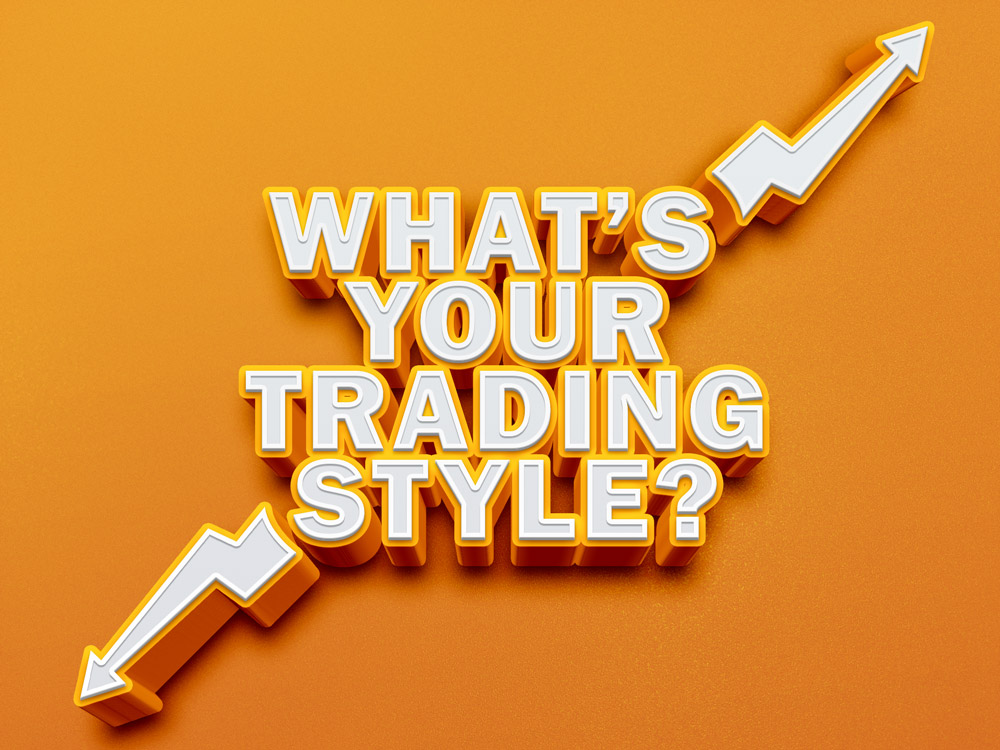Does your Trading Capital Influence your Trading Style?

We’ve all heard the old adage ‘you have to speculate to accumulate’, and while I certainly agree with its point, but is there a magic number that allows you to accumulate more? And, perhaps even more importantly how does this number influence your trading performance?
Like many others, when I began to be interested in the concept of trading, I was suckered in to the idea of get rich quick schemes, but it doesn’t take very long before the market teaches you a harsh lesson and you realise that this isn’t the way to approach trading.
So what’s the ideal amount of capital that will allow you to become a profitable trader? Is it $2,000, $10,000, $100,000?
Rather than coming up with a starting balance to determine profitability, perhaps you should be asking yourself how will you perform with any amount of money you begin trading with?
Let’s consider this from a different point of view. Trading is a business, so if you were going into a business venture, you know that you have upfront and ongoing costs associated with keeping the business going. The stability of your business depends on the amount of capital that you allow to keep your business running.
The ideology here is that you need enough to stay afloat. Don’t get me wrong, it’s not exactly that black and white with trading, but it is indeed relevant.
As traders, our objective is to exploit the market when the opportunity presents itself. We apply our edge and repeat. However, in saying this there are still so many traders who struggle to even apply a strategy or system, then repeat the process consistently.
One of the traps that new traders fall into is that they open an account, fund it with a small amount of capital, in this example let’s say $200, a standard minimum offered by many a Forex broker, and they then enter the markets with a mindset that says “it’s just $200, I can play around with this small amount”. From here, two things can happen. 1 – They triple their trading account, become excited and elated, think that they’ve mastered the markets and look to put more money in. Or 2 – The account blows up and they think “Meh, it’s only $200”.
The first possibility surprisingly happens quite often, let’s say it’s beginners luck. It’s almost like a trading curse that gets new traders hooked, in which the market makers are getting fresh blood suckered into the trading game.
Outcome two pretty much speaks for itself. A new trader loses, they’re then faced with a decision to quit, or to realise that trading isn’t as easy as they expected and dedicate some serious attention to the learning process.
When new traders make a few initial successful traders with no particular reasoning behind the reasons they took the trade, it creates a false sense of security, so to speak. They believe they can do it again and again. It’s something that many of us have been through, and I’m sure you can acknowledge that it can take a lot of time to break this mentality.
Why initial capital is all relative
All too often new traders neglect to pay attention to the importance of how trading capital can determine their trading performance.
Every one of us have heard “You need 6-12 months of living costs before you start trading”, or “pay off any debts before you start”
The thing is, I can’t tell you or anyone the amount of money that you need to trade well. It’s all down to your psychology and emotions. It’s not too difficult to turn $200 into $400 in a short time. But this occurs generally with a high element of luck and recklessness. Instead, traders need to ask themselves, “How can I manage a large sum of money effectively, if I can’t take the precautions required to manage a small sum?”
Asking this question is when the proverbial “penny drops” and you begin to understand what trading is about. Irrespective of the size of your account, without the application of proper process and methodologies there is no chance of managing capital effectively, and before too long your capital will dwindle away to nothing.
A trader’s capital isn’t going to affect their performance. Instead, your performance will affect your trading capital. It’s you in the driver’s seat and the one thing that you’re in control of is the safety of the vehicle you’re driving… in this case, the vehicle is your trading capital.
So let’s track back to the initial question, does trading capital influence trading style? No, well at least it shouldn’t. If your style of trading is aggressive, then so should your attitude to risk management.
Like anything in life, you only ever get out what you put into it. And Trading is about development and progression. It’s a business, and a craft. Treat it with the respect it deserves.
If you’re looking to get started developing your trading with a reliable, regulated Forex broker, find out more about the multi-award winning broker, Vantage here.
Fast & easy account opening
-
Register
Choose an account type and submit your application
-
Fund
Fund your account using a wide range of funding methods.
-
Trade
Access 300+ CFD instruments across all asset classes on MT4 / MT5
That's it, it's that easy to open a Forex and CFD trading account.
Welcome to the world of trading!
open live account








